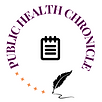Public Health News Analysis
What’s the fuss about the mRNA cancer vaccine? - Know the Fundamentals of it

Image Credits : Getty Images
Author : Dr Gaurav Singh
Updated on :
February 22, 2023
mRNA vaccine, Preventive Oncology, Moderna
Moderna and MSD trial of mRNA cancer vaccine is being reported to show promising results against advanced melanoma.
What are these mRNA vaccines and what role can they play in the treatment of cancer?
mRNA cancer vaccine is a type of cancer immunotherapy, which uses a person’s own cells to produce immune responses against cancer cells. These mRNA vaccines work by delivering mRNA inside the body, which code for the protein synthesized by the cancer cell (tumor-associated antigen).
When this vaccine is administered, it is taken up by the cell and used as a template to produce such cancer-specific proteins. This protein is then displayed on the surface of the cells, where it is recognized by the immune system as a foreign antigen. The immune system responds by producing 'Killer T-cells' which target such cells with the foreign antigen on their surface and kill them.
A potential advantage of mRNA cancer vaccines is that they can be tailor made according to the type of cancer, and they can be modified to produce different cancer-specific proteins. For example, in the case of prostate cancer, an mRNA vaccine can be designed in such a way that it codes for a specific protein that is expressed only in prostate cancer cells.
It also activates the immune system against only those cells which carry such antigen, it only targets and attacks the cancer cell. Because of this, it has a minimum risk of harming healthy cells, which is a major problem with other modalities of cancer treatment like chemotherapy and radiotherapy.
In terms of production also, mRNA vaccines are easy to produce and can be produced quickly as compared to traditional vaccines. They can be produced in a laboratory setting using a simple process. The traditional vaccines which use live or attenuated viruses or bacteria take time and are expensive to produce.
At present, several clinical trials are going on to test the efficacy of mRNA cancer vaccines for various cancer types including the Moderna mRNA cancer vaccine against melanoma and many of them are showing promising results.
mRNA vaccine seems to be a promising treatment option, but there are many challenges associated with it.
Regarding its limitations, mRNA vaccines are highly unstable and quickly degraded by the body's enzymes. For this, either they need to be delivered in sufficient quantity or they should be delivered using different methods of delivery. For example, nanoparticles or lipid carriers to protect them from enzymes.
Regarding its logistics, the cold chain requirements are strict for mRNA vaccines to maintain their effectiveness and stability. The recommended storage temperature for mRNA vaccines is between -60 degrees Celsius to -80 degrees Celsius. This needs special storage requirements in terms of deep freezers. All this requires investment and coordination across the cold chain.
mRNA vaccines can trigger an immune response against normal cells. This can happen if the mRNA vaccine targets a protein that is also expressed in normal cells. This will require a careful selection of target proteins that are specifically expressed in cancer cells.
The development of tolerance of the immune system towards an mRNA cancer vaccine. This happens when the immune system becomes accustomed to a particular system when exposed to the same mRNA repeatedly. To overcome this, multiple target proteins can be targeted by different mRNA to elicit a stronger immune response.
Moderna and MSD trial of mRNA cancer vaccine against advanced melanoma

In a small study that involved 157 melanoma patients, they found that patients taking an immunotherapy drug Keytruda for advanced melanoma were less likely to die or have cancer recurrence if they took the mRNA vaccine also (mRNA-4157/V940). Serious side effects were seen in 14.4% of patients who received the combination as compared to 10% with Keytruda alone.
The results of the trial need to be scrutinized by experts. But oncologists across the world have welcomed this as a new opportunity in the field of cancer care. These are exciting times in the field of mRNA vaccines.
Conclusion
The development that took place during the COVID-19 pandemic has fast-rolled the development of mRNA cancer vaccines. However, mRNA cancer vaccines are still in the early stages of development and further research is required to fully understand their potential. As the research in this area continues to advance, mRNA cancer vaccines will likely play an important role in cancer care in the future.
.png)



